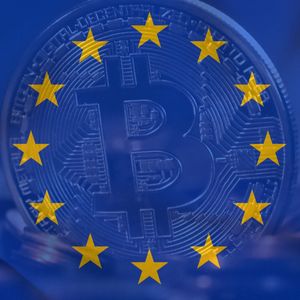From 2027, new anti-money laundering (AML) rules will come into force in the EU, banning anonymous crypto accounts and the use of private coins such as Monero and Zcash. Exchanges, banks and other service providers will fall under the restrictions. Providers will be prohibited from servicing anonymous accounts or working with assets that hide user data, according to Article 79 of the new Anti-Money Laundering Regulation (AMLR) published by the European Crypto Initiative (EUCI). There are no exceptions for private tokens. The regulations are part of a sweeping reform that will also affect bank accounts, safe deposit boxes and ”cryptoassets with an anonymization function”. According to Vyara Savova, Senior Head of Policy at EUCI, ”The regulations (AMLR, AMLD and AMLAR) are final and only the 'fine print' remains.” Crypto platforms operating in six or more EU countries will fall under the direct supervision of the Anti-Money Laundering Authority (AMLA). The regulator will select 40 companies - at least one from each member state - by 2027. The selection criteria include: a minimum of 20,000 customers in one country; annual turnover over €50 million. Additionally, mandatory user verification is introduced for transactions from €1000. EU regulator concerned about integration of cryptocurrencies and TradFi The growth of the crypto industry and its integration with TradFi entities could disrupt the stability of the global financial system. This was announced by the executive director of ESMA, Natasha Cazenave. Digital assets represent only 1% of global financial assets and do not pose a serious threat to traditional markets, she said. However, the official said the interconnectedness between the sectors, especially in the U.S., is growing and needs more attention. ”Shocks, even in small markets, can cause or catalyze broader stability problems in our financial system,” Cazenave emphasized. The ESMA spokeswoman highlighted the risks associated with stablecoins, exchange-traded crypto funds, as well as cases of hacking attacks and major scandals like the Bybit hack and FTX crash. Cazenave called for increased monitoring of the industry despite the EU's launch of the MiCa regulatory act, which she called a ”breakthrough.” According to her, even strict regulation does not make cryptocurrencies completely safe. EU regulator demanded 100% crypto asset coverage for insurers The European Insurance and Pensions Authority (EIOPA) proposed a new requirement: insurers must hold capital fully equal to the value of their investments in crypto-assets. This is how EIOPA wants to protect customers from the risks associated with the volatility of cryptocurrencies such as bitcoin and Ethereum. The proposal is presented in a technical report for the European Commission. Among the presented options, the regulator named ”full 100% coverage of cryptoassets” as the best. The previous idea of 80% coverage was considered insufficient because, according to EIOPA, it does not take into account the high risk of full depreciation of cryptocurrencies. This requirement will be stricter than for other assets. For example, for equities and real estate in the EU there is a need to hold capital at 39-49% and 25% respectively. However, the share of cryptoassets in the insurance and reinsurance market today is extremely small. It amounts to about €655 million - only 0.0068% of all transactions on the market in Europe. The majority of funds with crypto-assets are linked to mutual funds. Most of all, the new requirement may hit insurers from Luxembourg and Sweden, where the majority of insurance investments in cryptocurrencies are concentrated - 69% and 21% respectively.



















